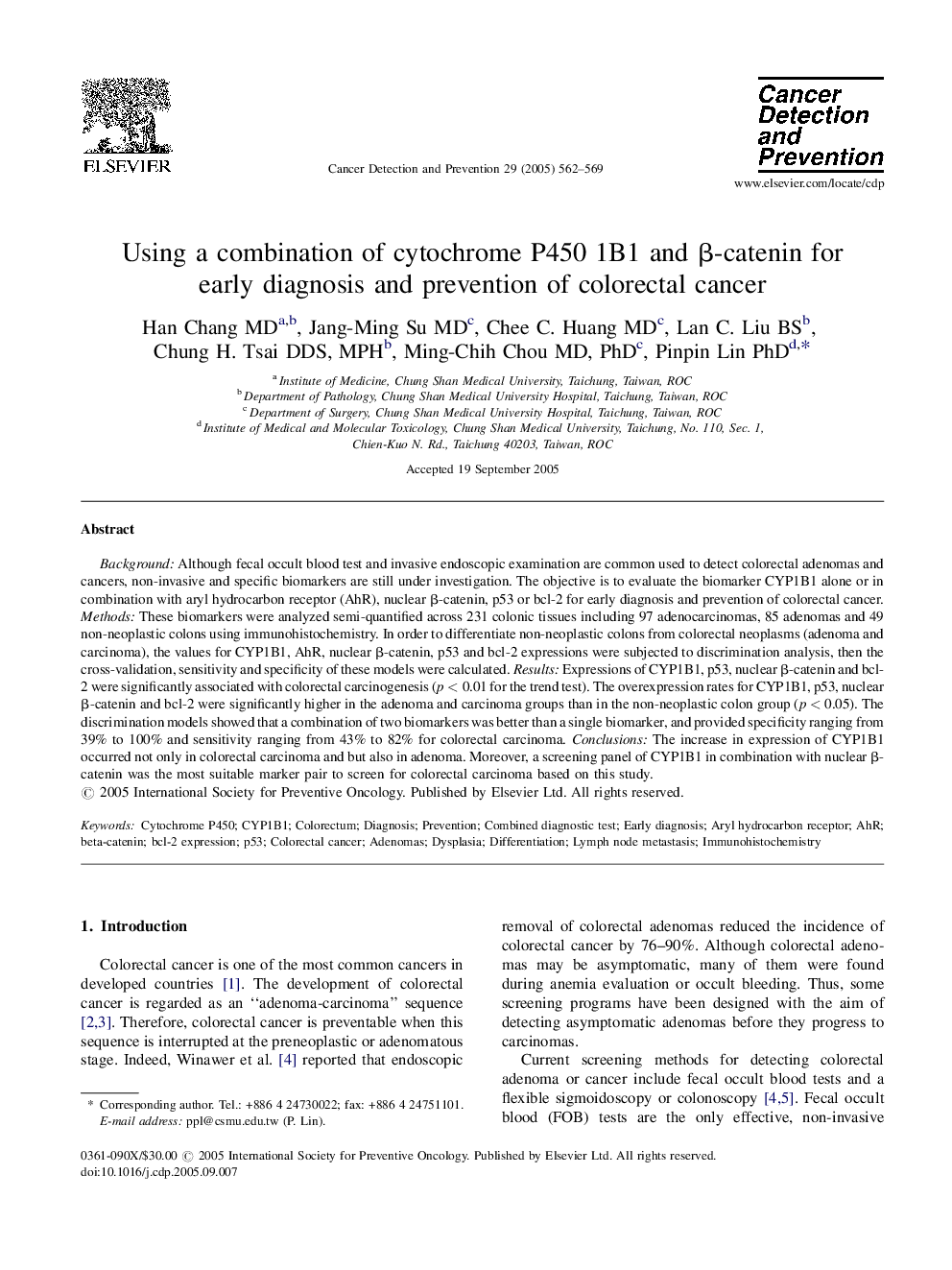| Article ID | Journal | Published Year | Pages | File Type |
|---|---|---|---|---|
| 9905090 | Cancer Detection and Prevention | 2005 | 8 Pages |
Abstract
Background: Although fecal occult blood test and invasive endoscopic examination are common used to detect colorectal adenomas and cancers, non-invasive and specific biomarkers are still under investigation. The objective is to evaluate the biomarker CYP1B1 alone or in combination with aryl hydrocarbon receptor (AhR), nuclear β-catenin, p53 or bcl-2 for early diagnosis and prevention of colorectal cancer. Methods: These biomarkers were analyzed semi-quantified across 231 colonic tissues including 97 adenocarcinomas, 85 adenomas and 49 non-neoplastic colons using immunohistochemistry. In order to differentiate non-neoplastic colons from colorectal neoplasms (adenoma and carcinoma), the values for CYP1B1, AhR, nuclear β-catenin, p53 and bcl-2 expressions were subjected to discrimination analysis, then the cross-validation, sensitivity and specificity of these models were calculated. Results: Expressions of CYP1B1, p53, nuclear β-catenin and bcl-2 were significantly associated with colorectal carcinogenesis (p < 0.01 for the trend test). The overexpression rates for CYP1B1, p53, nuclear β-catenin and bcl-2 were significantly higher in the adenoma and carcinoma groups than in the non-neoplastic colon group (p < 0.05). The discrimination models showed that a combination of two biomarkers was better than a single biomarker, and provided specificity ranging from 39% to 100% and sensitivity ranging from 43% to 82% for colorectal carcinoma. Conclusions: The increase in expression of CYP1B1 occurred not only in colorectal carcinoma and but also in adenoma. Moreover, a screening panel of CYP1B1 in combination with nuclear β-catenin was the most suitable marker pair to screen for colorectal carcinoma based on this study.
Keywords
Related Topics
Life Sciences
Biochemistry, Genetics and Molecular Biology
Cancer Research
Authors
Han MD, Jang-Ming MD, Chee C. MD, Lan C. BS, Chung H. DDS, MPH, Ming-Chih MD, PhD, Pinpin PhD,
